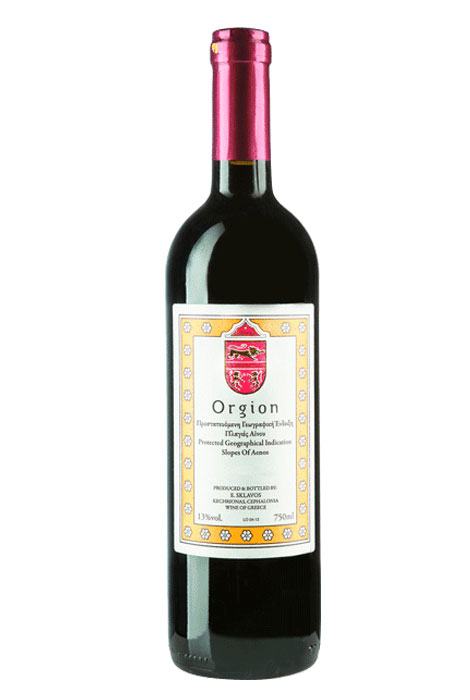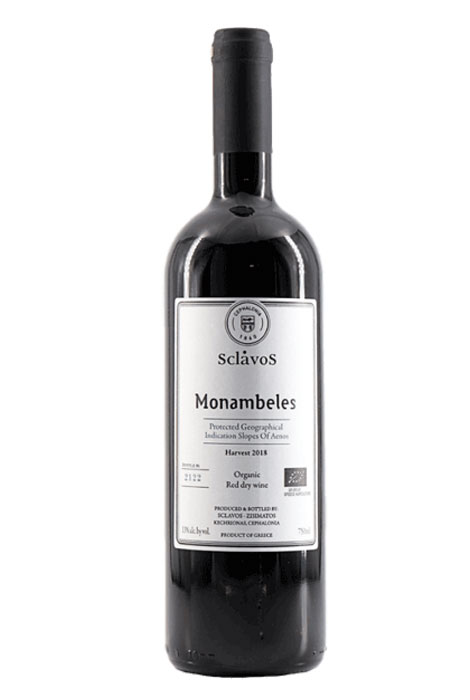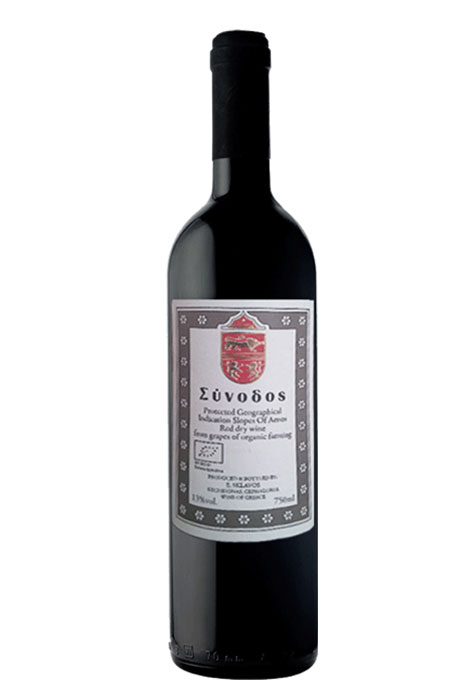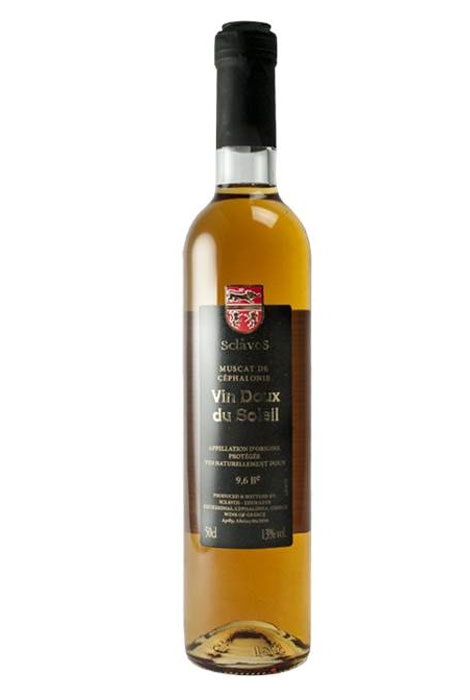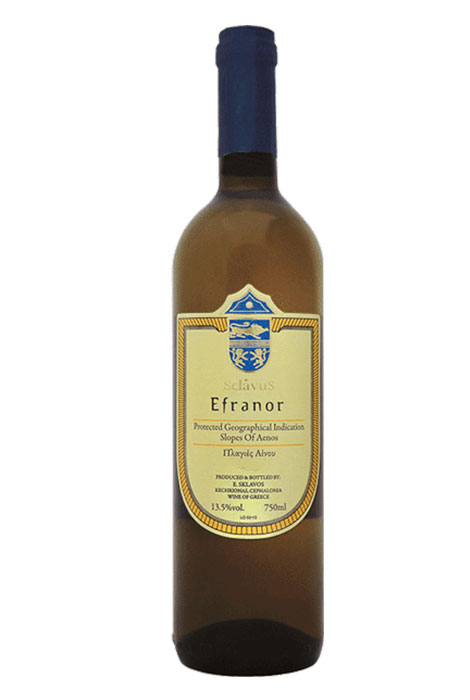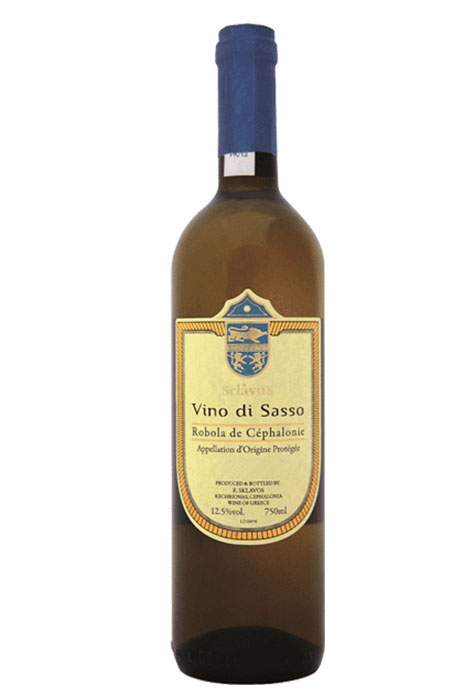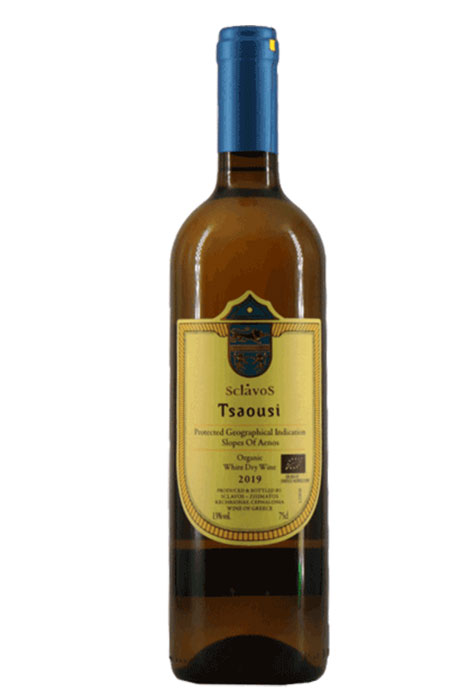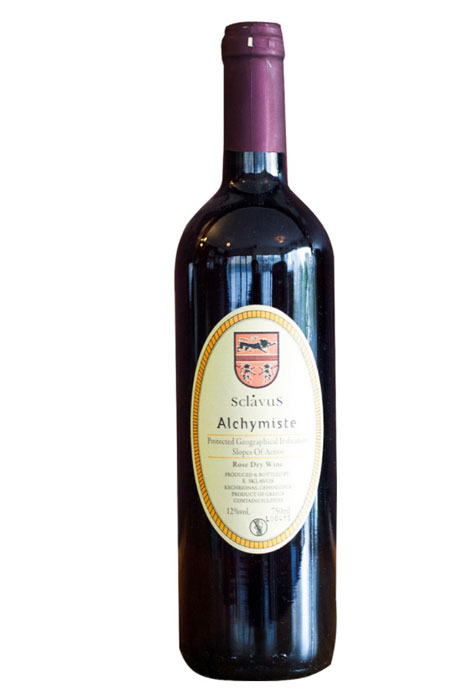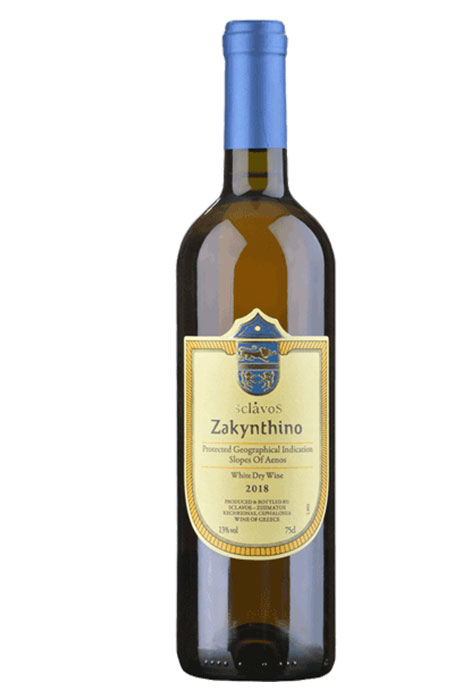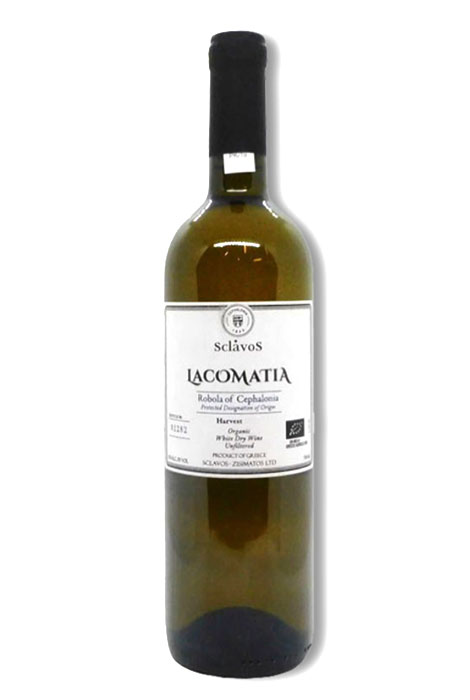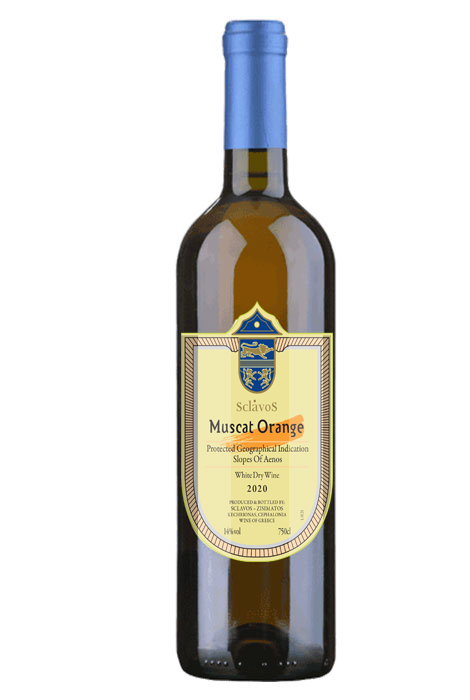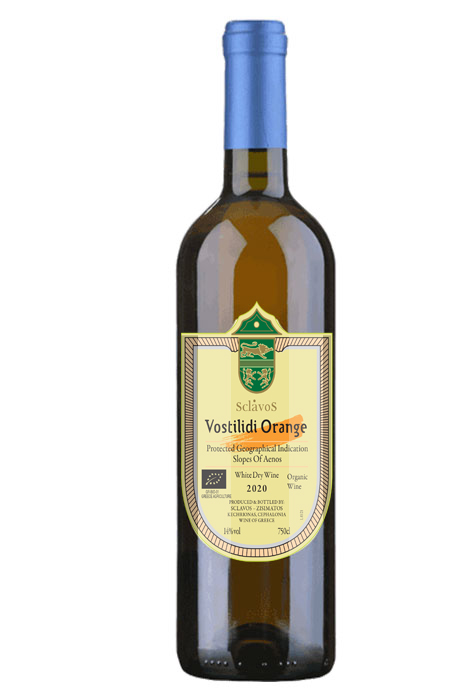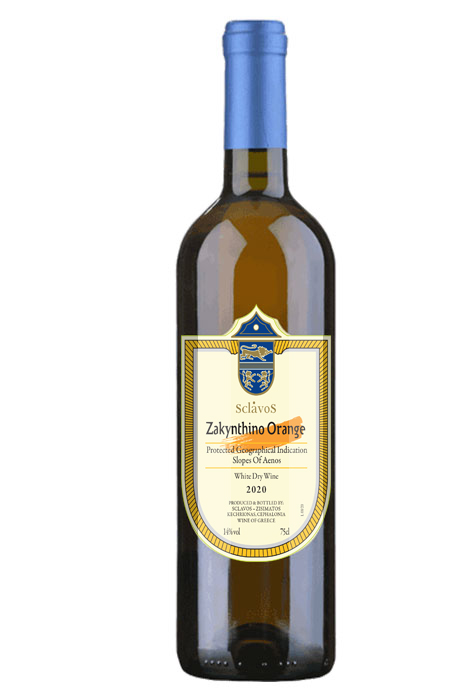|
Orgion  This wine comes from grapes of contract growers of the local variety Mavrodafni Kefallinia that are cultivated in a traditional way in the zone of Mavrodafni in the peninsula of Paliki with an altitude of 50 - 150 meters. Also in this zone there are significant variations of soil types from clayey-calcareous to limestone soils with hilly and semi-mountainous cup-shaped vineyards and the age of the vineyards is over forty years. Uncultivated areas and olive groves are inserted between the vineyards. The soils are calcareous. Their cultivation is conventional. The harvest takes place in the first fortnight of September. The winemaking process is biodynamic and includes long extraction, completion of alcoholic as well as malolactic fermentation with native yeasts. Aging takes place in French Allier type barrels with a capacity of five hundred, three hundred liters and barrique type for twelve months. Bottling does not include other treatments. The wine produced has excellent density and dyeing capacity but also delicious tannins. The character is robust, winey, with a long aftertaste that evokes the aromas of ripe forest fruits and the influences of vanilla. |
|
|
|
Monambeles  This wine comes from organic grapes of the local variety Mavrodafni Kefallinia that are grown in a biodynamic way in cup-shaped autoriz vineyards. The age of the vineyards is over seventy years, the altitude is about 250 meters and the soil composition is limestone (marl limestone - Maltese slab). The harvest takes place in the first fortnight of September. The winemaking process is biodynamic and includes a long extraction, completion of the alcoholic and malolactic fermentation with native yeasts, aged in French five-liter Allier oak barrels and in a three-ton oak winemaker for at least twelve months. The bottling process does not involve further procedures. The wine produced has excellent density and dyeing capacity. The character is robust with aromas of spices, ripe fruits and vanilla flavor, has a strong body, the acidity is quite good with crunchy delicious tannins and long aftertaste. Organic wine with Demeter certification. |
|
|
|
Synodos Bio  This wine comes from a combination of organic grapes of the local varieties, Mavrodafni Kefallinias and Vostilidi at a rate of 83% Mavrodafni and 17% Bostilidi. The grapes come from a privately owned vineyard which is grown in a biodynamic way. The altitude does not exceed fifty meters, the age of the vineyards is 70 years and the composition of the soil is marl limestone. The harvest is late after September 20th. The winemaking process involves long extraction of both varieties together, completion of the alcoholic and malolactic fermentation with native yeasts, in French Allier type barrels with a capacity of five hundred and three hundred liters. Aging follows for at least twelve months. Bottling is done without processing. The color is intense red / purple, with the aromatic character of red fruits and especially bilberry, its acidity is quite ripe, the tannins are quite well done and the aftertaste is quite large. This wine is available in a limited number of bottles. |
|
|
|
Vin Doux Du Soleil  This wine comes from the traditional variety of Moschato of Kefallinia that is cultivated in the area of Katogi of Palli and belongs to the category of products with a Protected Designation of Origin. The altitude of the vineyards is less than fifty meters and the age of the vineyards is more than sixty years. The soil composition is calcareous with linear planting in a cup-shaped shape. Characteristic is the high humidity during the ripening period during the evening hours (malatsa). To create this wine we use ripe healthy grapes which are harvested in the first fortnight of August and spread in threshing floors under the sun to partially dehydrate. In the produced must due to the increased content of sugars the alcoholic fermentation is not completed, which stops naturally, resulting in the presence of unleavened sugars. The final product is the result of aging in French oak barrels with a capacity of five hundred liters. The aromatic character is reminiscent of aromas of dried fruits such as figs and raisins, the acidity is balanced, the wine has a mild sweet taste with a long aftertaste. During the Venetian occupation in Kefalonia, this wine was a eponymous product of the Venetian state. It is a dessert wine in a limited number of bottles. |
|
|
|
Efranor  This wine is produced from a combination of grapes of the local varieties Moschatela and Vostilidi of Kefalonia at a rate of 70% Moschatela and 30% Vostilidi which are grown biodynamically in the area of Katogi on the Palli peninsula. The harvest takes place at the end of August. The altitudes do not exceed 50 meters, the age of the vineyards is older than about sixty years and the soil composition is clayey-calcareous. The cultivation of the vineyards is conventional with rich vegetation and intense night humidity (malatsa). This is a dry version of biodynamic vinification with native yeasts that gives the characteristic aroma of Moschatella but also the intense body of Bostilidi, with balanced acidity and a long aftertaste. The fermentation and maturation takes place in stainless steel tanks with a stay in fine mud for about 7 months without the addition of preservatives. Bottling without filtering. Organic wine with Demeter certification. |
|
|
|
Vino di Sasso  This wine comes from grapes of the local variety Robola Kefallinia, cultivated in the area of Robola and is one of the wines with a Protected Designation of Origin. The altitude ranges from 650-700 meters and the age of the vineyards is about thirty years. The soil in this variety is its important feature. The fragmented limestone (lime stone) and the special general soil-climatic conditions with the unique effect of the big mountain (Ainos), as a whole compose a unique vineyard. To give the special character of this wine we borrowed the name of the English commissioner Napier who first called it Vino di Sasso where it means Wine of the Stone. From this noble variety are produced white, aromatic wines, of high acidity with subtle aromas of minerality (mineral). Aromatic characteristics change over time. Initially, they give the feeling of fresh fruits such as lemon and other citrus fruits but also their flowers, while later, (in bottled wines of the second and third year) with the late maturation in the bottle, the petrol versions of the limestone background (terroir) emerge. In addition to its characteristic acidity as mentioned above, the wine also develops a long aftertaste with its aging potential of seven years. This wine is produced in a limited number of bottles. Organic wine with Demeter certification. |
|
|
|
Tsaousi  In the mountainous area of Palli Monabeles, the local variety Tsaousi (sugarcane clone) is biodynamically cultivated in autonomous vineyards over 70 years old. The composition of the soil is limestone with the mineral character of marl limestone ‘Maltese slab’ and the altitude is about 250 meters. The yield of the stumps does not exceed 250 kg / acre. The harvest takes place during the period 15-20 August. The result of the biodynamic vinification is an aromatic wine with aromas of white fruit with balanced acidity and complete aftertaste. Fermentation and stay in the fine mud for about 7 months. No preservatives are added before and after bottling. Available in a limited number of bottles. Organic wine with Demeter certification. |
|
|
|
Metagitnion Bio  The traditional variety Bostilidi is cultivated with special care on the estate of the Sklavos family in Kechrionas, Palli. The vineyard consists of self-rooting stems over 90 years old, in cup-shaped configuration, with an yield of 250 kg / acre and an altitude of less than fifty meters. The principles of the Biodynamic cultivation method are applied in the vineyard and in the winemaking process, which highlights the characteristics of the variety in the special environment of the estate. The harvest takes place relatively late in the first fortnight of September. The wine produced is characterized as a strong fiery wine with a rich body and aromas reminiscent of dried raisins. Fermentation and maturation is done in French oak barrels Allier 500lt without added preservatives. Available in a limited number of bottles and continues a family tradition of 300 years. Organic wine with Demeter certification. |
|
|
|
Alchymiste rose  This rosé wine comes from the combination of Mavrodafni Kefallinia and Moschatela in percentages of 50% Mavrodafni and 50% Moschatela. The cultivation that takes place is organic and the soils of the varieties are calcareous. The altitude is about 100 meters and the age of the vineyards is fifty years. The harvest takes place in the second fortnight of August and the wine produced has a rich aromatic character, balanced acidity and complete aftertaste. Organic wine. |
|
|
|
Zakynthino  This local variety is cultivated in the Elios area of South Kefallinia. It originates from Zakynthos and was settled in the area by monks who came to the area 400 years ago. The plateau of Elios-Pronnon has a south-western exposure of loamy clayey soil and is in direct influence with the mountain range of Ainos which forms an excellent condition for the development of this variety. The harvest of the Zakynthos variety takes place in the second fortnight of August. The wine produced is characterized by aromas of ripe peaches with a rich body and balanced acidity. The fermentation and maturation takes place in stainless steel tanks with a stay in fine mud for about 7 months without the addition of preservatives. Bottling without filtering. |
|
|
|
Lacomatia  This wine comes from the grapes of the Robola Kefalonia variety that are cultivated in the privately owned vineyard of the estate with the principles of the biodynamic method in hilly limestone terrain with large slopes at an altitude of 500-550 meters. This area is characterized as ideal for viticulture due to its correct orientation which creates good drainage conditions of the soil while reducing the moisture in cases of rain on the leaf surface. Besides, it is not accidental that the Lakomatia area was historically one of the highest quality areas in the wider area of Robola. The vinification is carried out biodynamically with the completion of the alcoholic fermentation in Foundre tank 1500 lit with native yeasts and a long stay with fine wine sludges without the addition of preservatives before and after bottling but also without filtration. This wine is characterized by the typicality of limestone in its aromatic character but also the acidity that is given to the taste in combination with a rich body. The aftertaste is long and salty. Bottling without filtering. Available in a limited number of bottles Organic wine with Demeter certification. |
|
|
|
Muscat Orange  This wine comes from the Moschato variety of Kefalonia that is cultivated vigorously in the area of Vatsa of Katogi with clayey-limestone soils and altitudes of about 50 meters. The harvest takes place in the first fortnight of August. The vinification is carried out by the method of skin contact, ie staying with the marcs throughout the alcoholic fermentation at low temperature in a stainless steel tank. The result of this process is a completion of the intense aromatic character of Muscat combined with the increase of density, body, intensity of acidity, and long aftertaste. Organic wine with Demeter certification. |
|
|
|
Vostilidi Orange  This wine comes from the local variety Bostilidi from the area of Paliki from autonomous biodynamic vineyards aged 75 years. The vinification technique is with the skin contact method for the entire duration of the alcoholic fermentation which develops into a concrete egg tank (concrete egg tank) 1700 liters. Stay with the fine mud where the malolactic fermentation takes place for about a year. Filtration without filter follows. This process gives the feeling of fruit and freshness to the wine, but at the same time with an imposing acidity and a tannic exuberance creating a robust wine with a great aftertaste. Organic wine with Demeter certification. |
|
|
|
Zakinthino Orange  This wine comes from the local variety Zakynthos that is cultivated in the Elios area of South Kefallinia. The plateau of Elios-Pronnon has a south-western exposure of loamy clayey soil and is in direct influence with the mountainous volume of Ainos. The vinification technique is with the skin contact method for the entire duration of the alcoholic fermentation which develops into a concrete egg tank (concrete egg tank) 1700 liters. Stay with the fine mud where the malolactic fermentation takes place for about a year. This is followed by bottling without a filter. The extraction process emphasizes freshness in combination with acidity and tannins and leads to a special result of a complete wine with a great aftertaste. |
|
|

